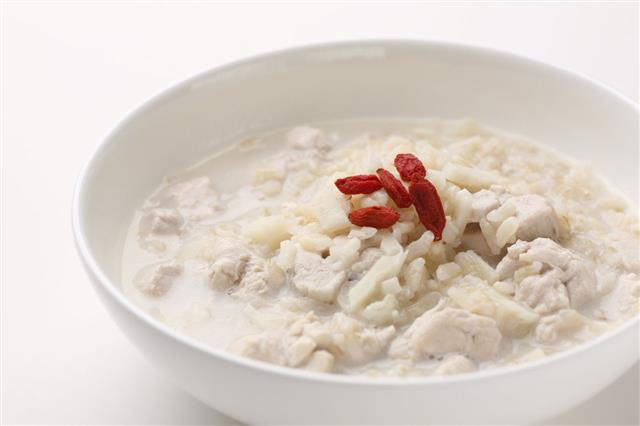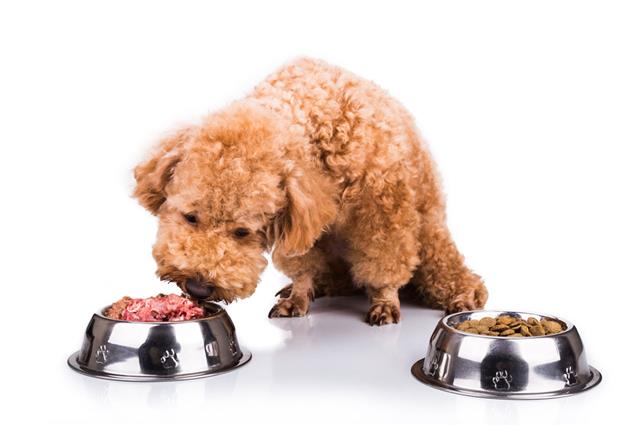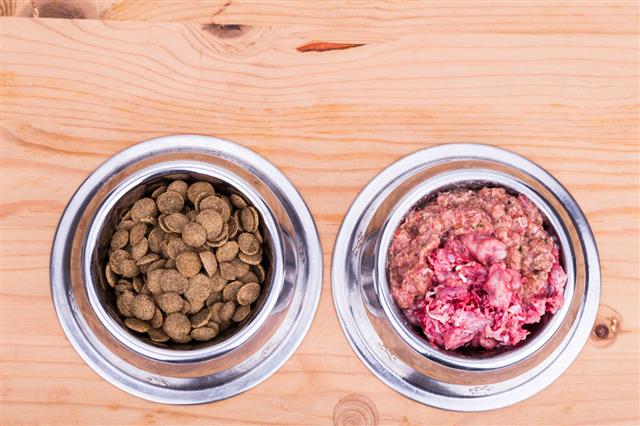
What food is best suited for dogs who have been diagnosed with diabetes? Which foods should you avoid including in his diet, and which should you include? Find the answers to these questions in the following article…
When a human is diagnosed with diabetes, the doctor gives an extensive list of foods that can be consumed and foods that cannot be consumed. The same is the case with dogs, since the basic nature of the disease remains the same. Requirements of dogs are different from our own. They have a certain set of foods that they can safely consume, while there are other foodstuffs that are harmful for them. The point of saying this is to tell you that it is very important to take sensible and logical decisions if you have a diabetic dog, and that going with your gut instinct (while it may work sometimes for some people) is best avoided. Consult the vet to find out how your pet’s current diet can be modified or changed to suit, and gradually improve, his current health condition.
It is important that you do not blindly follow a human diabetic diet plan for your dog. There have been cases where this has led to undesirable results. So, let us start by figuring out what a dog needs which his sugar levels have risen above normal…
- What to Include
- Carbohydrates (Starch and Fibers)
- Fats (Trans fats, Cholesterol, Saturated fats)
- Calcium and Vitamins (A, C and E)
- Proteins, Magnesium and Iron
- What to Curtail
- Carbohydrates (Sugars)
- Fats (Polyunsaturated and Monounsaturated)
- Sodium
- Potassium
Homemade Diabetic Dog Food
If you are well versed with the routine of making homemade dog food, then you will find no difficulty in preparing dog food with healthy choices. If you are not, then there are a few dos and don’ts that you need to keep in mind. The biggest advantage of preparing homemade food for your diabetic dog is that you will be feeding him/her healthy and unprocessed food. You may also consider a raw diet after consulting with your vet. While preparing homemade dog food recipes, healthy and low fat meat sources, like skinless and reduced fat turkey, chicken and fish can be used. Also, eggs, fresh vegetables and fruits (excluding raisins and grapes), soluble carbohydrate sources like brown rice, oats, barley and corn, additional natural sources of vitamins and minerals like vitamin E, omega 3 fatty acids, etc., can be incorporated in the diet. If you want to use supplements make sure that they are strictly prescribed by your vet.
As far as foods to be avoided are concerned, there are a few equally important things to remember. To begin with, avoid sugars and its forms like fructose, sucrose and sweet syrups if you are using them. Eliminate all traces of baked foods which includes dog treats and biscuits. You should also refrain from an all-meat diet or all-carb diet, which will only exacerbate the diabetes. Soft wet dog food, canned wet dog food and dry dog foods also need special attention. If you are unable to judge, then it is better to consult with the veterinarian. It is also important to avoid meat sources of high saturated fats, like beef and pork. If you have to include high fats, then opt for fish oils which are healthy fats.
Healthy Food for Diabetic Dogs
The following list is a mixture of high protein and low glycemic index foods that will be suitable for a diabetic dog. But before you incorporate any of these in your diabetic dog’s diet, make sure that you consult with the vet because depending on the diet, the insulin dose may change. Also, the list tells you how often you can feed you dog a particular food, so it is best if you can make a diet plan for the week in advance and consult the vet before putting it into practice. If the vet gives the nod, it is best to stick to the plan for a few weeks. Frequent changes in a diabetic dog’s diet are not at all advisable, since they can make his sugar levels fluctuate wildly. It is of utmost importance to feed a diabetic dog a consistent diet, with consistent portions at the same time everyday.I dare say that is more, OK, as important as what you feed him.
The stars alongside the food indicate how frequently you can feed it to your dog.
*** means 4 – 5 times a week (along with prescribed kibble).
** means 1 every two weeks (along with prescribed kibble).
* means 1 – 2 times a month (along with prescribed kibble).
When a human is diagnosed with diabetes, the doctor gives an extensive list of foods that can be consumed and foods that cannot be consumed. The same is the case with dogs, since the basic nature of the disease remains the same. Requirements of dogs are different from our own. They have a certain set of foods that they can safely consume, while there are other foodstuffs that are harmful for them. The point of saying this is to tell you that it is very important to take sensible and logical decisions if you have a diabetic dog, and that going with your gut instinct (while it may work sometimes for some people) is best avoided. Consult the vet to find out how your pet’s current diet can be modified or changed to suit, and gradually improve, his current health condition.
It is important that you do not blindly follow a human diabetic diet plan for your dog. There have been cases where this has led to undesirable results. So, let us start by figuring out what a dog needs which his sugar levels have risen above normal…
- Carbohydrates (Starch and Fibers)
- Fats (Trans fats, Cholesterol, Saturated fats)
- Calcium and Vitamins (A, C and E)
- Proteins, Magnesium and Iron
- Carbohydrates (Sugars)
- Fats (Polyunsaturated and Monounsaturated)
- Sodium
- Potassium
As far as foods to be avoided are concerned, there are a few equally important things to remember. To begin with, avoid sugars and its forms like fructose, sucrose and sweet syrups if you are using them. Eliminate all traces of baked foods which includes dog treats and biscuits. You should also refrain from an all-meat diet or all-carb diet, which will only exacerbate the diabetes. Soft wet dog food, canned wet dog food and dry dog foods also need special attention. If you are unable to judge, then it is better to consult with the veterinarian. It is also important to avoid meat sources of high saturated fats, like beef and pork. If you have to include high fats, then opt for fish oils which are healthy fats.
* Click on the table below for printing the information given.
n');newwin.document.write('n');newwin.document.write('
n');str=document.getElementById(id).outerHTML;newwin.document.write(str);newwin.document.write('n');newwin.document.write('



